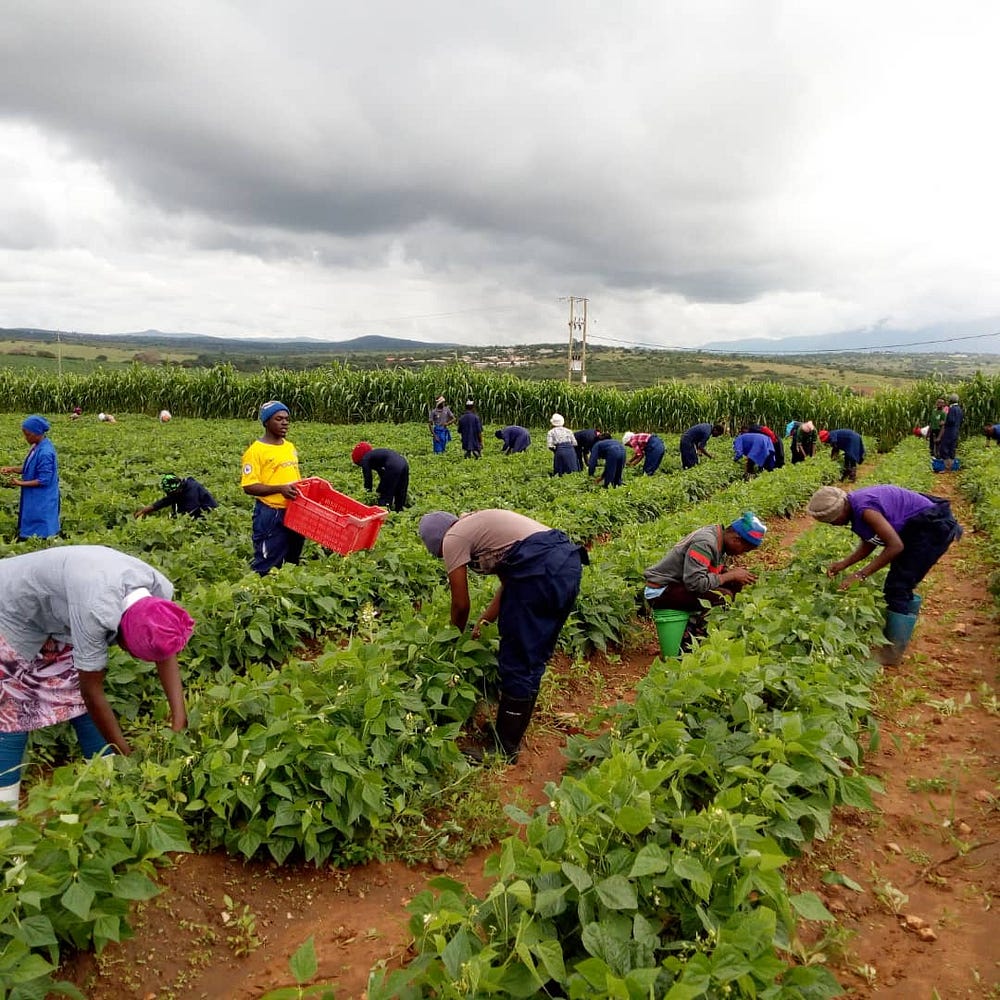We are proud to announce that Hadija Jabiri, Founder and Managing Director of EatFresh, is the recipient of the 2021 Feed the Future Growing Women’s Entrepreneurship (GroWE) award through the Feed the Future Partnering for Innovation program.

Hadija is a Tanzania-based entrepreneur with ambitious plans for her company EatFresh, a horticultural business specializing in growing, processing, packaging, and selling high-value fruits and vegetables.
The GroWE award aims to address the challenges faced by women-owned or operated businesses in emerging markets and help accelerate their growth. Recipients are women entrepreneurs like Hadija who are leading promising agribusiness ventures and creating reliable market opportunities for smallholder farmers from whom they source.
As this year’s GroWE award winner, Hadija will have the opportunity to design and receive a suite of business development support services she identifies as most valuable for taking her company to the next level.
A local business development service provider, knowledgeable of the market landscape in which EatFresh operates, will work with her to co-design these tailored services, such as developing market diversification strategies and providing investment readiness.
Finding Opportunity in New Challenges
Women lead approximately one-third of small- and medium-sized enterprises (SMEs) in emerging markets. However, they are disproportionately underserved, receive less favorable financing terms, and face limited access to markets, market information, and digital technology. These challenges have only been compounded during the past year by the global COVID-19 pandemic, the impacts of which are likely to reverberate for some time to come.
Meet Hadija and Her Business: EatFresh
As an export company, the pandemic hit EatFresh especially hard. When movement restrictions tightened and countries went into lockdown, Hadija’s logistical costs and challenges skyrocketed. Many of her export customers were forced to temporarily shut down or significantly reduce their orders, and international travel slowdowns made it difficult to deliver existing orders on time. In some cases, import restrictions halted any possibility of her fresh produce reaching customers across borders.

With these challenges in mind, Hadija is excited to focus her GroWE-awarded business development support services on diversifying EatFresh’s markets to include export, regional, and local — with the goal of strengthening the company’s resilience to manage future shocks.
While Hadija always knew she wanted to be an entrepreneur, she never expected to work in agriculture. Her first company — started as a university student more than a decade ago — focused on manufacturing cleaning supplies. Inspiration struck in 2014, however, when she saw a television program about the horticultural business in Iringa, a region in Tanzania’s Western Highlands with climate conditions ideal for year-round agriculture. Two years later, Hadija jumped at the market opportunity and purchased a small plot of land to establish her business. The rest, they say, is history.
Transform to Succeed
EatFresh started small by growing cucumbers, tomatoes, and onions, but quickly differentiated itself by selling exclusively to corporate customers, such as hotels and supermarkets.
Hadija soon identified two opportunities that stood to complement her business well. The first focused on the fact that while Iringa had many smallholder farmers, they lacked information and access to reliable end-markets for their fruits and vegetables. The second involved the huge, relatively untapped potential to export the region’s high-quality produce to consumers thousands of miles away in Europe.
Ever the astute entrepreneur, Hadija merged the two ideas to transform EatFresh into the horticultural company it is today, which utilizes an outgrower scheme of smallholder farmers to export snow peas, sugar snap peas, French beans, and baby corn to the United Kingdom, Germany, and the Netherlands.

Pivoting to export markets required significant investments in infrastructure, including trucks and a reliable cold chain. Without collateral, Hadija was early on unable to secure financing from banks and other sources.
Undeterred, she again took a risk and ordered a cold room, rented a warehouse, and negotiated with airlines and employees alike to have faith in her and work on credit.
The risk paid off. Her first export shipment to Ireland generated significant attention and interest, and her business grew.
Today, EatFresh sources 70 percent of its export crops from smallholder farmers, who are attracted to the prospect of being able to grow all year round for a guaranteed market. They also benefit from a variety of company-provided services, including demonstration plots and trainings on good agricultural practices, organization into farmer groups, and access to finance for inputs. Farmers are provided with harvesting equipment, and aggregation and transport services for their produce.
In response to the unprecedented challenges of the COVID-19 pandemic, the company pivoted its operations to focus on in-country sales and began sourcing bananas from more than 100 local farmers and adding value by ripening, packaging, and distributing them to 320 fruit vendors across three districts in the Iringa region. EatFresh is also looking forward to starting distribution in nearby regions like Dodoma. While initially conceived to compensate for inconsistent export sales, Hadija now sees it as an integral part of the company’s longer-term goal to achieve sustainability — and one that she plans to develop through the GroWE award.
Impact as Entrepreneur

Looking ahead, Hadija envisions the GroWE award enabling her to assess potential markets for EatFresh and to develop investment readiness, but also, importantly, to support the smallholder farmers with whom the company works.
As the pandemic has upended so many aspects of her business, she is eager to start the next chapter, noting that the “[the GroWE award] will help show us the new way forward. We got it at exactly the right time.”
Feed the Future Partnering for Innovation is a US Agency for International Development (USAID) program, implemented by Fintrac Inc., that is changing the landscape for supporting agriculture in emerging markets by empowering the private sector to raise incomes and reduce hunger. Learn more about our partners.
Feed the Future Partnering for Innovation is changing the landscape for supporting agriculture in emerging markets. www.PartneringforInnovation.org

